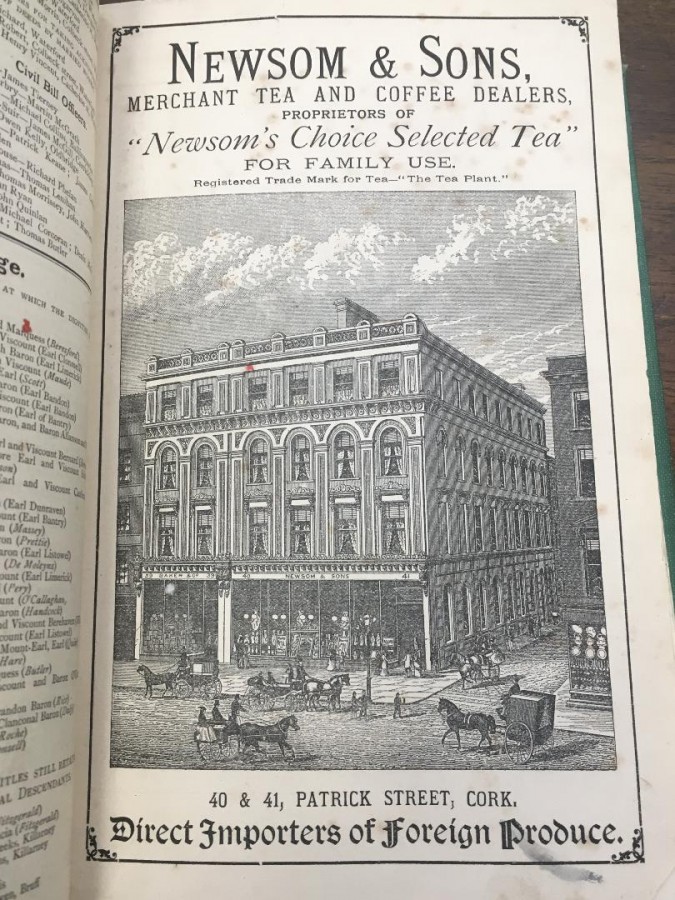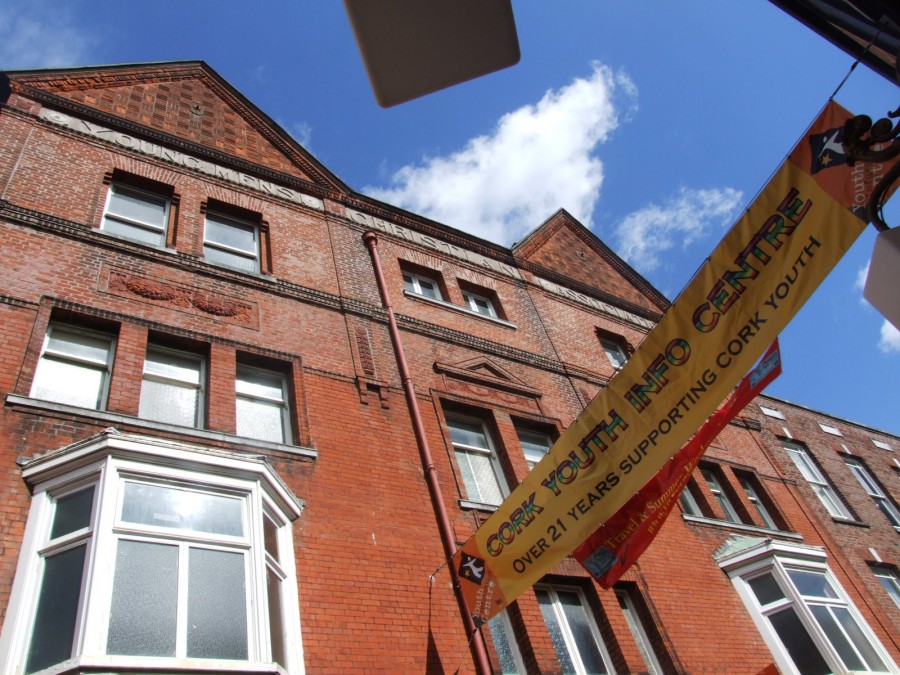
Kieran’s Our City, Our Town Article,
Cork Independent, 25 January 2018
Stories from 1918: The Newsom Legacy
This day 100 years ago, 25 January 1918, brought the news to Cork citizens that one of the its respected merchants had passed away – that of John Charles Newsom. The Cork Examiner records that at a meeting in the City Council Chamber in Cork City Hall Alderman Simcox proposed a vote of sympathy with the Newsom family of whose death they were all sorry to hear; “The late Mr Newsom is a great loss to the commercial community in Cork. He was a member of many public boards, notably the North Infirmary. He gave lavishly to many of the charities in the city, and not only did he contribute to public charities, but he also gave privately. The poor of the city would deeply regret his loss, and frequently large crowds could be seen outside his place from year’s end to year’s end”.
The announcement of the death of John Charles Newsom took place at his residence Temple Lawn on Blackrock road. Born in 1838, he was a son of Samuel Newsom, and grandson of the founder of John Newsom and Son. In the wake of the Napoleonic wars and the consequent depression, Quaker merchant families began increasingly to concentrate on developing a new style business based on combinations of retailing and wholesaling. They took on insurance and shipping agencies and increasingly began to take on a rentier or landlord role. John Newsom set up his business circa 1816. His firm was situated at 109, St Patrick’s Street. In the Cork Constitution, on 5 October 1830 it details some of the diverse products that John Newsom was importing – “100 casks of new mustard, 30 boxes of Kensington candles, Jamaica coffee in tierces and barrels, Double Berkley cheeses in baskets, fine salad oil in half-chests, Carolina rice in tierces, cotton and linen wick in bags, vinegar from Bordeaux, Zante currants, Italian liquorice, isinglass, citron and candy, pearl and Scotch barley, split peas, chocolate, patent and shell cocoa, wax and spermacetti candles”.
John Charles entered the family business early in life. When the firm was made a limited company in June 1899, he became its chairman, and his brother, Samuel H Newsom became Vice Chairman. Incorporated for many years in the business was a wholesale sweet and confectionary branch trading under the name of Baker and Co.
As a young man John Charles became interested in the Temperance Movement, and as the years went by this interest developed considerably. He developed the rallying posters and posted them in the city and region. For many years he was President of the Irish Temperance League. In one of the last speeches he made in public, delivered in 1916, he referred to the starting in 1862 of refreshment rooms in Cork City for the purpose of supplying the working classes with a substitute for intoxicating drink. The committee was Francis W Allman, Francis Guy, Edward Cleburne, Denis Brennan, Robert Scott and Newsom himself. The enterprise was a success. It was years later before it was introduced in other cities like Liverpool and Bradford. The committee also chaired one of the two steamers of the Citizens’ River Company called the Citizen. In this, during the summer months, evening excursions round the harbour were given. The ticket cost sixpence, while for an extra two pence refreshments were supplied in the shape of coffee and buns.
In 1894 John Charles was a proud President of the Cork Young Men’s Christian Association with its circa 850 members. The YMCA societies were founded across Ireland from 1849 onwards and were the brainchild of Revered Dean O’Brien. By 1894, the one in Cork was the only one that remained. In other towns and cities once flourishing societies became split up, and gradually disappeared, their places being taken by other associations.
John Charles campaigned for a new building and merchants like him contributed generously towards one on Marlboro Street. On 2 March 1894, a gorgeous and spacious red brick building opened. Designed by architect William Henry Hill, it was built by John Delaney and his team. The Cork Examiner, the day after the event recorded that on the ground floor there was lecture hall, at the southern end. On the first storey was a reading room, secretary’s office, retiring room, and junior members’ room. On the second storey was situated a classroom for educational purposes and rooms for the committee, honorary secretary, and caretaker. On the top storey was the gymnasium. The entire cost of construction has been about £5,000, £850 of which was expended in purchasing the ground and chapel.
As an Elder of the Quakers, John Charles Newsom took a leading part in all their religious and social activities. Another society in whose work John Charles played a very active part was that for the Prevention of Cruelty to Children, of which he was honorary secretary. He was one of the oldest trustees of the North Infirmary. He was a Harbour Commissioner with the Port of Cork. Another position he held was that of Chairman of the Cork Improved Dwellings Company, which under his able guidance, the company built houses (Industry Place, Hibernian Buildings & Rathmore Terrace) for the working classes at a reasonable rent.
Captions:
930a. Advertisement Guy’s Commercial Directory of Cork 1883 for Newsom’s Merchant Tea and Coffee dealers, located at the corner of Marlboro Street and St Patrick’s Street (source: Cork City Library)
930b. Former YMCA Hall, Marlboro Street, which initially opened in 1894 (picture: Kieran McCarthy)
